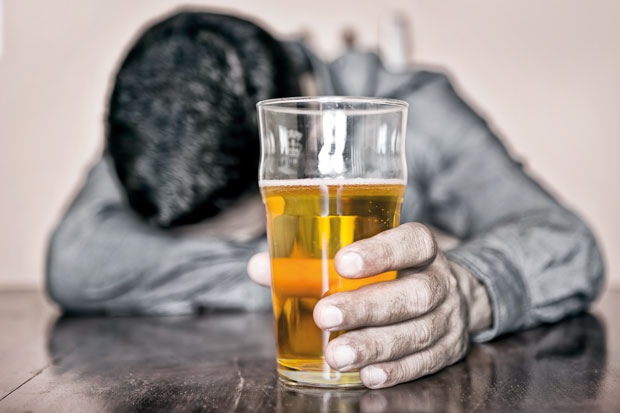Reply To:
Name - Reply Comment

Reuters Health - People with blood alcohol levels below the legal cutoff for being considered drunk may still be unsafe drivers if they’re also sleep deprived, a small experiment suggests.
Researchers tested drowsiness and attention in 16 healthy young men exposed to either sleep deprivation or alcohol consumption, or to both at once.
They found that the combination of moderate alcohol consumption - within legal limits for driving - and restricting sleep to just five hours a night produced greater drowsiness and more deficits in attention than either sleep restriction or alcohol intake alone.
The combined effects of alcohol and sleep deprivation lasted two to three hours, the study found.
“No amount of alcohol intake has been deemed safe when under the influence of sleepiness through either poor or inadequate sleep, or being awake when the body (should be) asleep at night,” said study co-author Clare Anderson of the Institute of Cognitive and Clinical Neuroscience at Monash University in Australia.
“Our take-home message would therefore be to avoid alcohol when feeling sleepy and to have a short nap before attempting to drive or undertaking any other safety critical task,” Anderson said by email.
Previous research has shown that alcohol can impair motor coordination, critical thinking skills and decision-making and may lead people to take more risks than they might while sober. Sleep deprivation, meanwhile, has been linked to distraction and delayed reaction times.
In the current experiment, men between 18 and 27 years old were assessed four times. Researchers asked the participants to rate their level of drowsiness, tested their focus and attention with eye-movement measurements, and examined their response speed to stimuli by seeing how fast they could push a button when an image flashed on a computer screen.
At the start of the study, researchers ran men through these tests without any intervention. Then they repeated the same assessments after alcohol or sleep deprivation alone or in combination.
Outside the experimental conditions, the men typically went to bed between 10:00 p.m. and 1:00 a.m. and woke up between 6:00 a.m. and 9:00 a.m. To create a state of sleep deprivation, men were allowed to rest only from 2:00 a.m. to 7:00 a.m. the night before the test session.
During alcohol assessments, performed more than four hours after men woke up for the day, participants were given enough to drink to raise their blood alcohol level to 0.05 percent - the legal driving limit in Australia, the UK and many European countries. The legal limit in the U.S. is 0.08 percent.
Researchers tested the men’s attention and vigilance one hour after they drank alcohol and again every 30 minutes for two hours.
When men were deprived of sleep and also given alcohol, they were most impaired about 90 minutes after they drank, the study team reports in Human Psychopharmacology.
It took about 2.5 hours for men to return to their performance levels before having the drink, even when they got rest breaks between rounds of testing.
Beyond its small size, other limitations of the study include the focus on healthy young men, which means the results might be different for older people or individuals with physical or mental health issues that can impact driving ability.
Even so, the findings suggest that people who no longer feel “buzzed” from drinking may still be unsafe behind the wheel, said Russell Griffin, a researcher at the University of Alabama at Birmingham who wasn’t involved in the study.
“So while you may feel fine driving home when you leave that party, that feeling can make a turn for the worse on the drive home, particularly since alcohol increases the feeling and effects of sleep deprivation,” Griffin said by email.
The results should also serve as a reminder to drink in moderation.
“The body is only able to metabolize, or remove, a little bit of alcohol at a time, so the more alcohol a person drinks, the more alcohol is circulating through their system and the higher the impairment,” Griffin said.